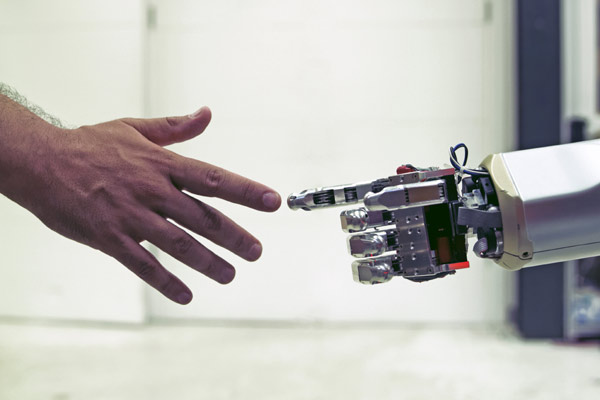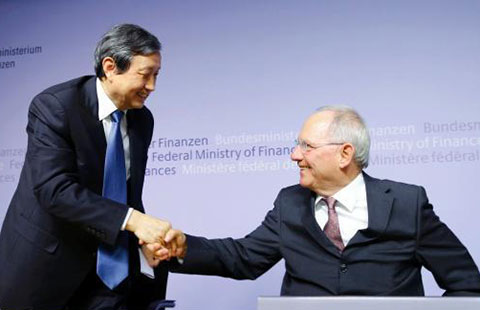China needs to become manufacturing power
By Liu Zheng (chinadaily.com.cn) Updated: 2015-03-13 17:48
 |
|
China is already the world's biggest industrial robot market in terms of sales volume, overtaking Japan. More than three quarters of the industrial robots sold in China were made by overseas brands. [Photo/Provided to China Daily] |
"Every country has its own demands. For China, a country with large amount of energy consumption and hankering for new technologies, especially the Internet of Things, we need to learn from the German 'Industrie 4.0' concept," Zhou Hongyu, deputy of the National People's Congress and vice-chairman of Hubei provincial legislature, told chinadaily.com.cn during an interview at the two sessions.
On March 17, 2014, as one of the co-ediors, Zhou published a book of essays titled China can lead third industrial revolution: Professor, addressing how China may fare in an age of new fuels, new materials and high-tech technology and Internet growth.
 |
|
Zhou Hongyu, deputy of the National People's Congress and vice-chairman of Hubei provincial legislature. [Liu Zheng/chinadaily.com.cn] |
This year, Zhou submitted a proposal to the NPC, suggesting hitching a ride on "Industrie 4.0", and striving to become a manufacturing power.
"Manufacturing is traditionally a strong area for China," Premier Li Keqiang said in the annual Government Work Report. "We will implement the Made in China 2025 strategy; seek innovation-driven development; apply smart technologies; strengthen foundations; pursue green development; and redouble our efforts to upgrade China from a manufacturer of quantity to one of quality."
According to Xinhua News Agency, the authorities will provide preferential policies to promote the restructuring of the traditional manufacturing industry, and support enterprises' mergers and reorganization, as well as market competition.
Germany raised the concept "Industrie 4.0" and set it as one of the country's 10 "future projects" in 2010. In a weekly podcast in February, German Chancellor Angela Merkel said Germany is seeking to set a global standard for "Industrie 4.0".
"'Industrie 4.0' and 'Made in China 2025' both have similarities and difference in variety of aspects. The development of the two countries is not on the same level," said Minister of Industry and Information Technology Miao Wei.
It will take eight to ten years for Germany to achieve the plan of "Industrie 4.0" and that point will almost coincide with China's 'Made in China 2025' strategy, said Miao.
- Israel requests to join Asian Infrastructure Investment Bank
- Chinese stocks rebound on April 1
- China, the West in Africa: more room for cooperation than competition
- Nanjing cuts taxi franchise fees
- Air China increases flights to Milan, Paris
- JD.com raises delivery charges
- Veteran corporate strategist upbeat about China economy
- L'Oreal China sales revenue up 7.7% in 2014

















